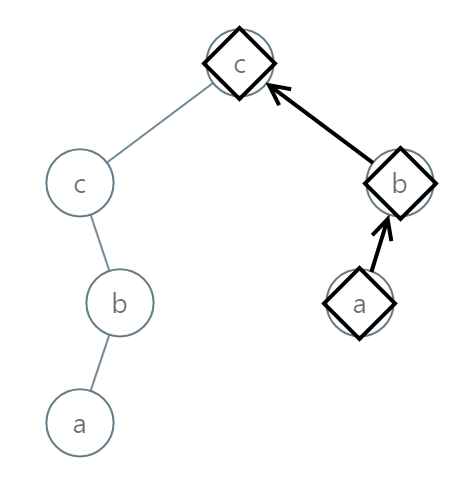You are given the
Return the lexicographically smallest string that starts at a leaf of this tree and ends at the root.
As a reminder, any shorter prefix of a string is lexicographically smaller.
- For example,
"ab" is lexicographically smaller than"aba" .
A leaf of a node is a node that has no children.
Example 1:

Input: root = [0,1,2,3,4,3,4] Output: "dba"
Example 2:

Input: root = [25,1,3,1,3,0,2] Output: "adz"
Example 3:

Input: root = [2,2,1,null,1,0,null,0] Output: "abc"
Constraints:
- The number of nodes in the tree is in the range
[1, 8500] . 0 <= Node.val <= 25
Solution
BST 加上要找極值,用 DFS 解
這題比較需要注意的地方,應該是 lexicographical order 和答案字串的順序
kolin 有提供一個 compareTo 的 function 可以使用,就是用 lexicographical order 比較
kotlin
沒有留言:
張貼留言